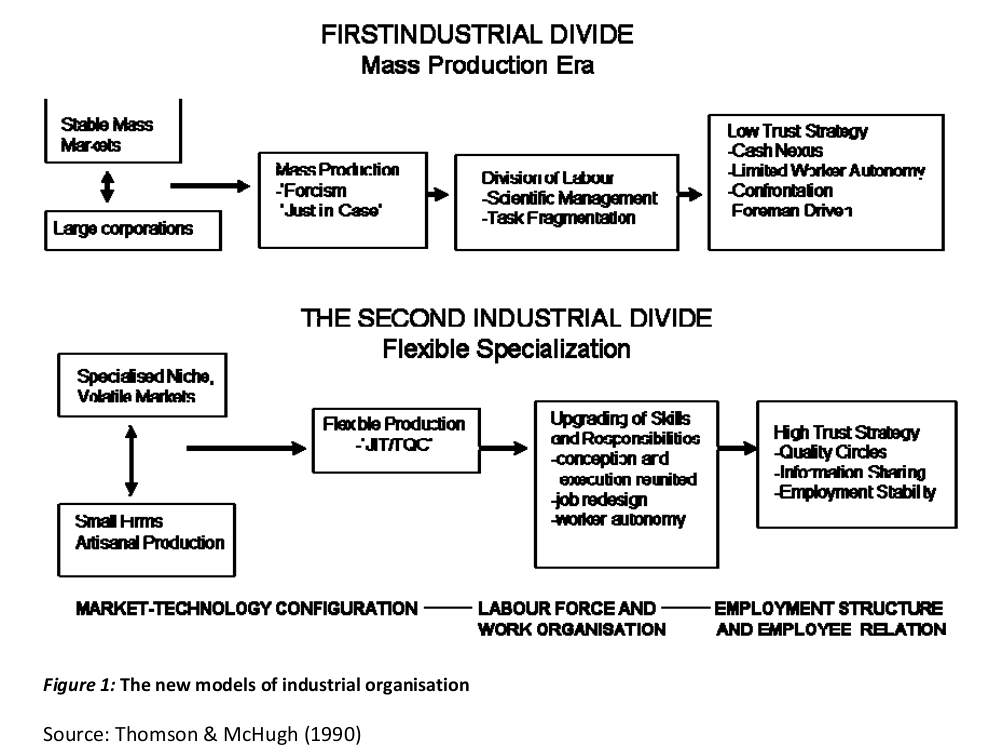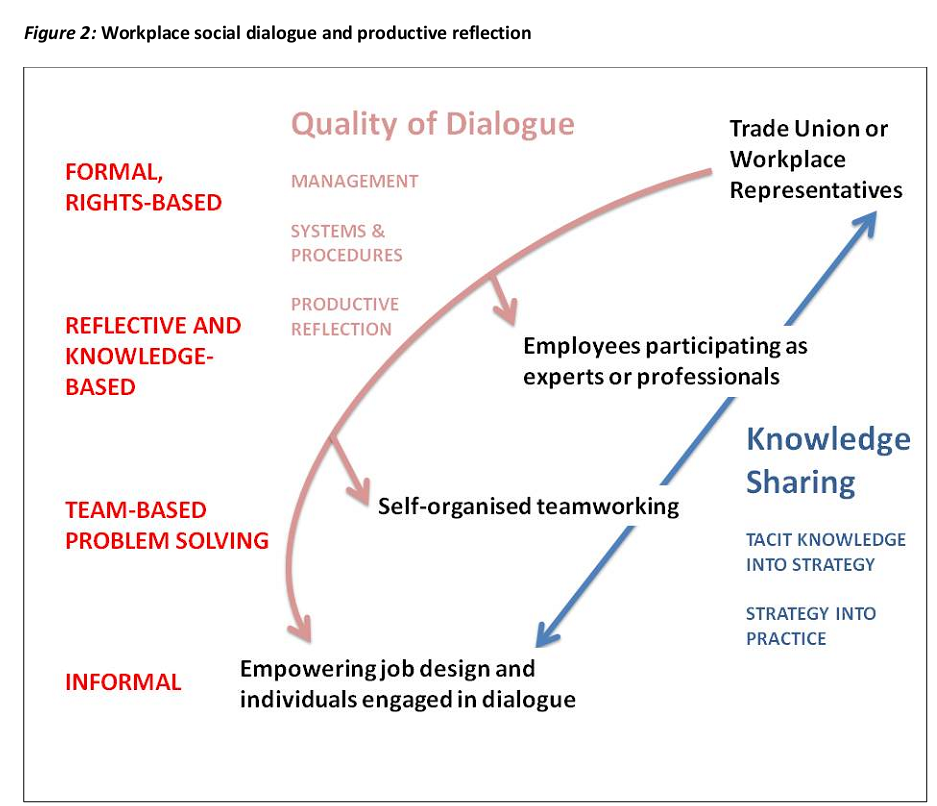A long time ago, effective internal communication meant sharing information through the top-down channels through a cascade approach that information was filtered down through the company.
Now effective internal communication means helping the company deliver better performance, enabling workers to understand and play their role in the company strategy. Also, employee expectations have changed. Today, people expect to be able to voice their opinions and demands and have their voices heard. The choice for such effective communication is workplace social dialogue.

The shift from mass production to emphasis on customized and high-quality products, the shift in labour use, how it acts in work, what it’s valued and how labour realizes value in work lead to much higher need of social dialogue utilization.
What is workplace social dialogue?
Social dialogue is defined by ILO (International Labour Organization) as “to include all types of negotiation, consultation or simply exchange of information between, or among, representatives of governments, employers and workers, on issues of common interest relating to economic and social policy. This definition and concept of social dialogue varies from country to country, and region to region”.
Social dialogue takes place at various levels, from tri-partite, national, sectoral to company, enterprise level. In this post, I will be giving laser focus on social dialogue at company, workplace level. It is characterized both formally and informally, in forms of information sharing, consultation, negotiation and collective bargaining, joint problem-solving and joint decision-making, and at both strategic and task-based levels of an organization.
Intended outcomes of workplace social dialogue
If you succeed to develop effective social dialogue, your company will enjoy improved efficiency, collaboration and engagement, and successfully develop an environment that workers feel their voices will be heard. Rather, effective workplace dialogue would help:
- Improve working conditions (i.e. working time flexibility, occupational health and safety, learning and development, addressing the challenges of an ageing workforce, equality and equal opportunities)
- Mitigate the negative effects of globalization (global economic downturn, etc.)
- Boost workplace compliance
- Boost knowledge-sharing between different levels of the company

Here representative participation acts as guarantor and enabler of direct participation of employees. Dialogue about knowledge sharing through formal and informal channels has become ‘the new collective bargaining’ that workers offer their tacit knowledge and have influence in strategic decision making. The outcomes of this bargaining can be win-win as workers can develop and use their competencies and creative potential to the fullest, thereby improving the corporate innovation and competitiveness while improving quality of working life. (Photo credit: European Foundation for the Improvement of Living and Working Conditions, 2013)
Success factors of social dialogue at work
- For successful social dialogue particularly related to such potentially debatable areas as pay and working time, both parties need be able to have a clear idea of their aims and put forward their case coherently. At the same time, they need have mutual trust and respect to be able to work together and resolve differences in viewpoints and expectations. A good working relationship between employer and employee representatives is a great contributor to this.
For your information:
What if you can’t afford your employees salary anymore?
- Crucially, both parties are firmly committed to following the results gained from the dialogue. They are willing to engage in the project from the beginning, put mechanisms in place before a project’s inception, and buying into the process. For example, in such less controversial areas as occupational health and safety (OHS) or training and development, the ultimate goals of the involved parties often converge, making it potentially easier to reach consensus. Still, being committed to carrying out the proposed measures is also important to ensure they are correctly put into practice.
- In some cases, trust between the parties can be built by working together in less controversial issues like training and development before moving on to more potentially debatable topics like pay and working time.

Nice read that you may not want to miss:
Lunch Breaks at Work: One Hour or Half Hour Is Optimum to Benefit Organization and Workers?
- Trust is developed over time. Aside from formal dialogues, develop informal ones that would be equally as effective and connect more people together. For example,
+ Invite workers to contribute to regular climate feedback sessions relating to company strategy and culture.
+ Hold ‘story-swapping’ sessions of important topics.
+ Hold radio-style interviews where employees are invited to submit questions.
+ Hold peer group meetings that would encourage honest and open dialogue among the participants. Involve a skilled third-party facilitator. He can help create a culture that welcomes open, honest discussions at all levels. He can give unbiased feedback to participants to help them see their blind spots. Also, he acts as the outside voice, helping resolve conflicts, keeping discussions moving more productively toward a resolution.
+ Use tools to facilitate dialogue in discussion about the important topics – for instance, internal blogs, discussion boards, podcasts, videocasts, social networks, wikis. Don’t forget to teach workers how to use these tools.
For those who are interested in:
Exactly How to Get Honest Feedback from Your Employees
- In some cases, social dialogue may not be a matter of choice but a necessity. For instance, employee representatives have to respond quickly when more and more employees fear about job security as a matter of restructuring or more severe competition due to globalization. In these situations, trade unions should be united and show strength during the negotiations because the balance between employer and employee representative isn’t always equal. The employer may threaten to relocate production to another country, which could lead to the plant’s closure.
- Importantly, the social dialogue isn’t too complex, and there is good succession planning.

- In some cases, the dialogue process isn’t successful due to the parties at odds. Evidently, it is hard to bring together parties with opposing views and expectations of the dialogue process. Still, this can sometimes be achieved by involving the appreciate mediation arrangements.
- In other cases, the problems are more related to emerging internal disagreements and a lack of unity within one of the parties, either on the employer or employee side. Then the social partners on each side should ensure that they’re united in their approach to the social dialogue apart from being prepared.












Replies to This Discussion